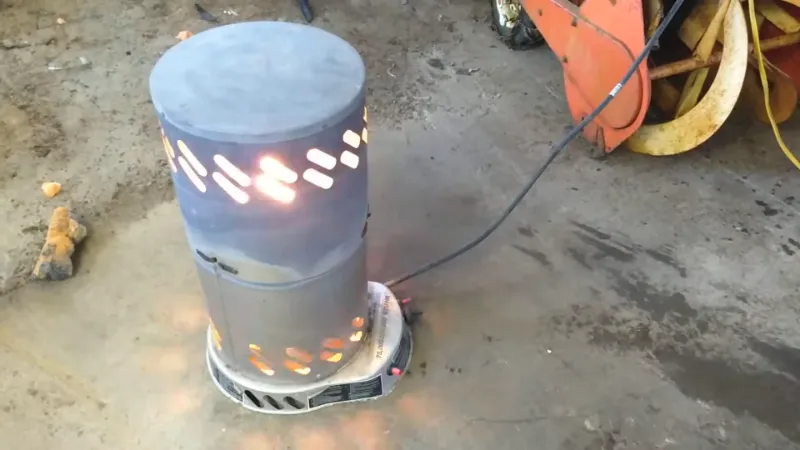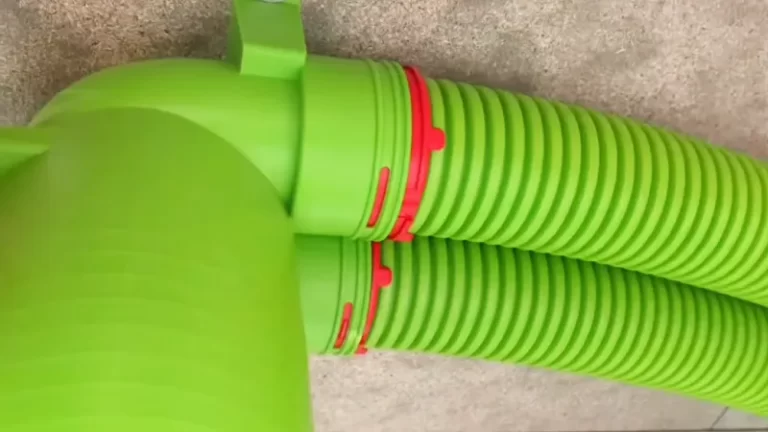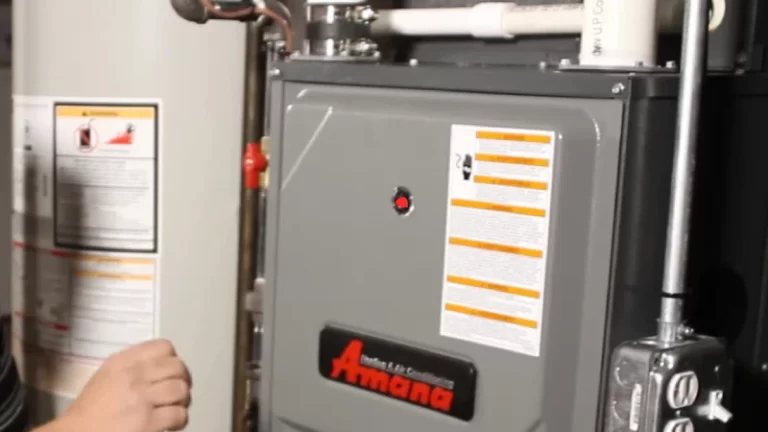Why Does Propane Heater Flare Up? Meaning, Causes, Solutions
Propane heaters are a popular and efficient way to heat homes, garages, and outdoor spaces. They use propane gas as a fuel source and convert it into heat through a combustion process. While propane heaters are convenient and offer numerous benefits, it’s crucial to operate them properly to ensure safety and efficiency.
One common problem with propane heaters is flaring up, which can cause damage and pose a safety hazard. In this blog, we will explore the causes and consequences of propane heater flares up, as well as what you can do to prevent them.
You'll Learn About
Causes of Propane Heater Flare-ups
Propane heaters are an excellent source of heat in homes and outdoor areas, but they require proper operation to avoid dangerous flare-ups. Flare-ups are sudden, uncontrolled increases in the flame size that can pose a serious risk of fire.
Understanding the common causes of propane heater flare-ups is essential to prevent such incidents. Below are some of the most frequent causes of propane heater flare-ups:

Improper Gas Pressure
One of the most common causes of propane heater flare-ups is incorrect gas pressure. If the pressure in the propane tank or line is too high or too low, it can cause the flame to grow uncontrollably. This can be due to a malfunctioning pressure regulator, which is responsible for controlling the gas pressure and preventing flare-ups.
Clogged Burners
Another common cause of propane heater flare-ups is clogged burners. Burners can become clogged with dirt, debris, or other materials that restrict the flow of gas. This can cause the flame to grow larger and become unstable, leading to a flare-up.
To avoid this, it is important to keep the burners clean and free of debris.
Thermostat Issues
Thermostat issues can also lead to propane heater flare-ups. If the thermostat is not functioning properly, it may not accurately control the temperature of the heater. This can cause the flame to grow larger and become unstable, leading to a flare-up.
Regular maintenance and inspection of the thermostat can help prevent this issue.
Leaks in the Propane Tank or Line
Leaks in the propane tank or line can cause propane heater flare-ups. If there is a leak in the tank or line, propane gas can escape into the air, creating a highly flammable and explosive situation. To avoid this, it is important to regularly inspect the tank and line for leaks and to repair any leaks as soon as possible.
propane heaters are a safe and efficient source of heat when properly operated. Understanding the common causes of propane heater flare-ups is essential to prevent dangerous incidents. Regular maintenance, inspection, and proper operation of the heater can help ensure that it operates safely and efficiently.
Symptoms of Propane Heater Flare-ups
Propane heaters are a convenient and efficient way to provide warmth to your home. However, improper operation can lead to dangerous situations, such as a propane heater flare-up. Recognizing the symptoms of a propane heater flare-up is essential for preventing injury and damage to your home.
In this section, we will discuss the four most common symptoms of a propane heater flare-up.
Sudden Bursts of Intense Heat
One of the most noticeable symptoms of a propane heater flare-up is sudden bursts of intense heat. This can occur when the propane gas is not burned properly, leading to an accumulation of unburned gas that eventually ignites in a sudden burst.
The intense heat can cause damage to the surrounding area, including walls, furniture, and other objects. It is essential to pay attention to any sudden increases in heat and to take action to correct the problem.
Unusual Noises or Smells Coming From the Heater
Another symptom of a propane heater flare-up is unusual noises or smells coming from the heater. For example, you may hear hissing or popping sounds, or you may smell a strong odor of propane gas. These symptoms indicate that there is a problem with the heater, and you should take immediate action to correct the problem.
Orange or Yellow Flames Instead of Blue
The normal color of a propane flame should be blue, and any deviation from this color may indicate a problem. If you notice that the flame on your propane heater is orange or yellow, it could be a sign of a flare-up.
This could be due to a problem with the gas pressure, clogged burners, or other issues. It is essential to take immediate action to correct the problem if you notice this symptom.
Propane Tank Running Out of Gas Quickly
A final symptom of a propane heater flare-up is that the propane tank may run out of gas quickly. This could be due to a leak in the propane tank or line, causing the propane gas to escape and reducing the amount available for use by the heater. If you notice that your propane tank is running out of gas more quickly than usual, it is essential to take action to correct the problem.
recognizing the symptoms of a propane heater flare-up is essential for preventing injury and damage to your home. By paying attention to sudden bursts of intense heat, unusual noises or smells, orange or yellow flames, and a propane tank running out of gas quickly, you can help ensure the safe and efficient operation of your propane heater.
Troubleshooting Propane Heater Flare-ups
Propane heaters are a popular choice for outdoor heating and indoor heating during power outages. However, if not operated correctly, propane heaters can pose a safety hazard. One of the most common problems with propane heaters is flaring up.
Flare-ups can be caused by a number of factors, but with proper troubleshooting, they can be easily corrected. In this section, we’ll explore the steps you can take to troubleshoot propane heater flare-ups.
Checking the Gas Pressure
One of the most common causes of propane heater flare-ups is improper gas pressure. If the pressure is too high, the flame will be too intense and can cause a flare-up. To check the gas pressure, you’ll need a gas pressure gauge.
You can usually find one at a hardware store or online. Once you have the gauge, attach it to the propane tank and turn on the heater. If the pressure is too high, you’ll need to adjust the pressure regulator to bring it back to the recommended level.
If you’re not comfortable making this adjustment, you should have it done by a professional.
Cleaning the Burners
Another common cause of propane heater flare-ups is clogged burners. If the burners are clogged, the flame will be disrupted and can cause a flare-up. To clean the burners, you’ll need to turn off the heater and let it cool.
Then, remove the burners and clean them with a wire brush or sandpaper. Once they’re clean, reattach the burners and turn the heater back on. If the flare-up continues, you’ll need to inspect the thermostat.
Inspecting the Thermostat
The thermostat is responsible for controlling the heat output of the propane heater. If the thermostat is malfunctioning, it can cause the flame to be too intense and lead to a flare-up. To inspect the thermostat, you’ll need to turn off the heater and let it cool.
Then, remove the thermostat and inspect it for any signs of damage or wear. If you find any issues, you’ll need to replace the thermostat. If you’re not comfortable with this, you should have it done by a professional.
Checking for Leaks in the Tank or Line
A leak in the propane tank or line can also cause a flare-up. To check for leaks, you’ll need to inspect the tank and line for any signs of damage or wear. If you find any leaks, you’ll need to have them repaired by a professional. You also need to:
- You should also inspect the connections between the tank and the heater for any signs of leaks. If you’re not comfortable with this, you should have it done by a professional.
- Propane heater flare-ups can be a serious safety hazard, but with proper troubleshooting, they can be easily corrected.
- By checking the gas pressure, cleaning the burners, inspecting the thermostat, and checking for leaks in the tank or line, you can ensure that your propane heater is operating safely and efficiently. If you’re not comfortable with any of these steps, you should have them done by a professional.
Safety Precautions for Propane Heater Flare-ups
It is essential to take the necessary precautions when dealing with propane heaters to ensure your safety. Propane heaters, if not handled or maintained properly, can result in flare-ups, which can be dangerous. To minimize the risk of a flare-up and ensure your safety, here are some key safety precautions to follow:
Turn Off the Heater Before Attempting Any Repairs
Before attempting any repairs on your propane heater, it is crucial to turn it off and disconnect the propane tank. This will prevent any accidental flare-ups and ensure your safety.
Keep Flammable Materials Away From the Heater
It is crucial to keep any flammable materials, such as curtains, paper, or furniture, away from the propane heater. These items can easily catch fire if the heater malfunctions or flairs up.
Have a Professional Perform Any Necessary Repairs
If you are unsure about how to repair your propane heater, it is best to leave it to a professional. A professional has the training, knowledge, and tools to perform repairs safely and efficiently.
Regularly Check for Leaks or Other Signs of Malfunction
Regular inspections of your propane heater can help you detect any potential issues before they escalate into a flare-up. Check the tank and lines for any leaks, and if you notice any unusual noises or smells coming from the heater, it’s best to have a professional inspect it.
taking the necessary safety precautions when dealing with propane heaters can help you avoid dangerous flare-ups and ensure your safety. Regular inspections and maintenance, as well as seeking professional help if needed, can also help prevent any potential issues from escalating.
Tips for Maintaining Safe and Efficient Operation of Propane Heaters
In addition to the causes, symptoms, troubleshooting, and safety precautions discussed in the previous sections, there are some additional tips that can help you maintain safe and efficient operation of your propane heater.
Regular Maintenance
Regular maintenance is essential to keep your propane heater in good working condition. This includes checking the gas pressure, cleaning the burners, and inspecting the thermostat. It is also a good idea to have a professional perform an annual inspection and maintenance of your heater to ensure that it is functioning properly.
Proper Ventilation
Proper ventilation is important to prevent flare-ups and to ensure the safe and efficient operation of your propane heater. Make sure that the room where the heater is located has adequate ventilation, and keep flammable materials such as curtains and furniture away from the heater.
Store Propane Tanks Properly
When not in use, store your propane tanks in a cool, dry place. This will help prevent leaks and other malfunctions that can cause flare-ups.
Use Proper Fuel
Only use propane gas specifically designed for heating in your propane heater. Using other fuels or fuels that have been contaminated can cause the heater to malfunction and potentially lead to a flare-up.
Be Prepared for Emergencies
Make sure you have a fire extinguisher and a smoke detector near your propane heater. It is also a good idea to have a plan in place in case of an emergency, such as knowing how to turn off the gas supply and evacuate the building.
By following these tips and being aware of the causes, symptoms, and safety precautions associated with propane heater flare-ups, you can ensure that your propane heater operates safely and efficiently. If you experience any problems with your propane heater, it is always best to seek the assistance of a professional to ensure that it is repaired and functioning properly.
Frequently Asked Questions
Can propane heaters be used indoors?
Yes, propane heaters can be used indoors as long as they are properly ventilated. Propane heaters produce carbon monoxide, a poisonous gas, so it’s important to have proper ventilation to ensure that the gas is properly dispersed.
Additionally, propane heaters should be used in well-ventilated areas, away from flammable materials and in accordance with manufacturer’s instructions.
Can propane heaters explode?
Propane heaters can potentially explode if they are not used or maintained properly. The most common cause of propane heater explosions is a leak in the propane tank or line.
Leaks can cause the propane to build up and eventually ignite, leading to an explosion. It’s important to regularly inspect the propane tank and line for leaks and to have a professional perform any necessary repairs to prevent this from happening.
Why do propane heaters produce orange or yellow flames instead of blue?
Propane heaters produce orange or yellow flames instead of blue because the flame is not burning efficiently. This can be due to a number of reasons, such as clogged burners, improper gas pressure, or a malfunctioning thermostat.
The orange or yellow flames indicate that the propane is not completely burning, which can lead to a build-up of carbon monoxide and other toxic gases. If you notice orange or yellow flames coming from your propane heater, it’s important to turn off the heater immediately and have a professional perform any necessary repairs. There are many alternative to drain pan of heaters.
What should I do if I smell gas coming from my propane heater?
If you smell gas coming from your propane heater, it’s important to take immediate action to prevent a potential fire or explosion. Turn off the heater, evacuate the area, and open windows and doors to disperse any gas that may have accumulated.
Do not turn on any lights or electrical appliances, as this could ignite the gas. Call a professional to inspect the heater and repair any leaks or malfunctions.
How often should I have my propane heater inspected and serviced?
The frequency of inspections and service for your propane heater will depend on the manufacturer’s recommendations and the amount of use it gets.
Generally, it’s a good idea to have your propane heater inspected and serviced at least once a year, or more frequently if you notice any symptoms of a flare-up or other malfunctions. Regular inspections and service can help prevent flare-ups and other safety hazards, as well as ensure that the heater is operating efficiently.
Conclusion
Propane heater flare-ups can be caused by several factors such as improper gas pressure, clogged burners, thermostat issues, and leaks in the propane tank or line. Symptoms of a flare-up can include sudden bursts of intense heat, unusual noises or smells, orange or yellow flames, and a propane tank running out of gas quickly.
To troubleshoot a flare-up, you can check the gas pressure, clean the burners, inspect the thermostat, and check for leaks in the tank or line. It is essential to take necessary safety precautions when dealing with a propane heater flare-up, such as turning off the heater, keeping flammable materials away, having a professional perform any necessary repairs, and regularly checking for signs of malfunction.
Proper maintenance and following safety guidelines can ensure efficient and safe operation of your propane heater.


